Research and development project on grain legumes through integrated agricultural engineering practices (Part 2)
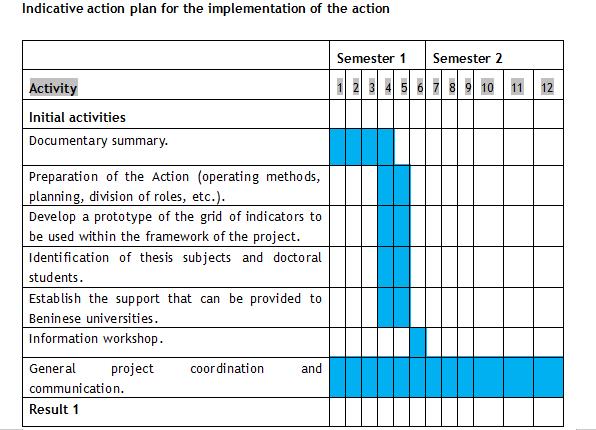
Methodological approach
Intervention zone
The action will be carried out in the South, Center and North of Benin in research stations and in the real environment on the research and development sites and outside the research and development sites in different agro-ecological zones.
In the south, the soils are dominated by ferrasoils (the so called terre de barre). The climate is subequatorial to Sudano-Guinean characterized by the alternation of two dry seasons (November to March and July to August) and two rainy seasons (March to July and September to November). The average annual rainfall is 1200 mm. The vegetation is of the degraded wooded savannah type, while the ligneous vegetation is dominated by the oil palm (Elaeis guineensis).
In the center, the soils are of the tropical ferruginous type. The region enjoys a Sudano-Guinean type climate. It constitutes a transition zone between the South with a bimodal rainfall regime and the North with a monomodal rainfall regime. The average annual precipitation varies between 900 mm and 1400 mm with an uneven distribution of rainfall. The vegetation is of the degraded wooded savannah type.
In northern Benin, the soils are of the tropical ferruginous type. The climate of the area is of the Sudano-Sahelian type, characterized by two main seasons: a dry season which extends from October to April and a rainy season which extends from May to September. The average annual rainfall is between 700 and 900 mm, with an average of 800 mm over the last sixty years.
The Action is part of an on-station research approach, multidisciplinary research and development to generate suitable technological options for improving the productivity and competitiveness of grain legumes. Such an approach will make it possible to promote innovations and develop appropriate technologies that can be deployed effectively to meet the needs of stakeholders. With this in mind, the appropriate technologies will be generated are technologies that are affordable, reproducible and accessible and which will contribute to strengthening the resilience of communities to internal and external shocks. The Action is declined according to the following results:
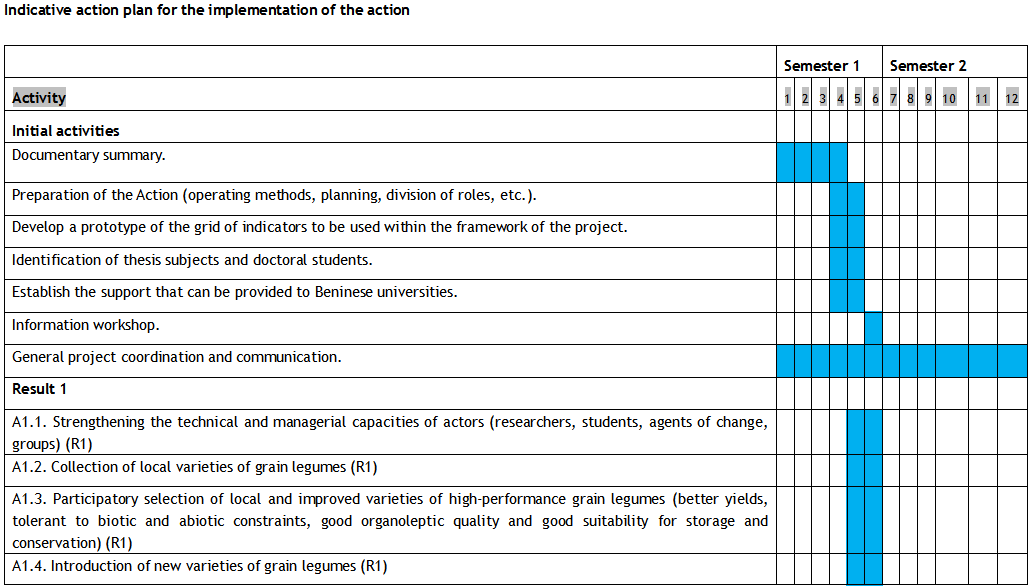
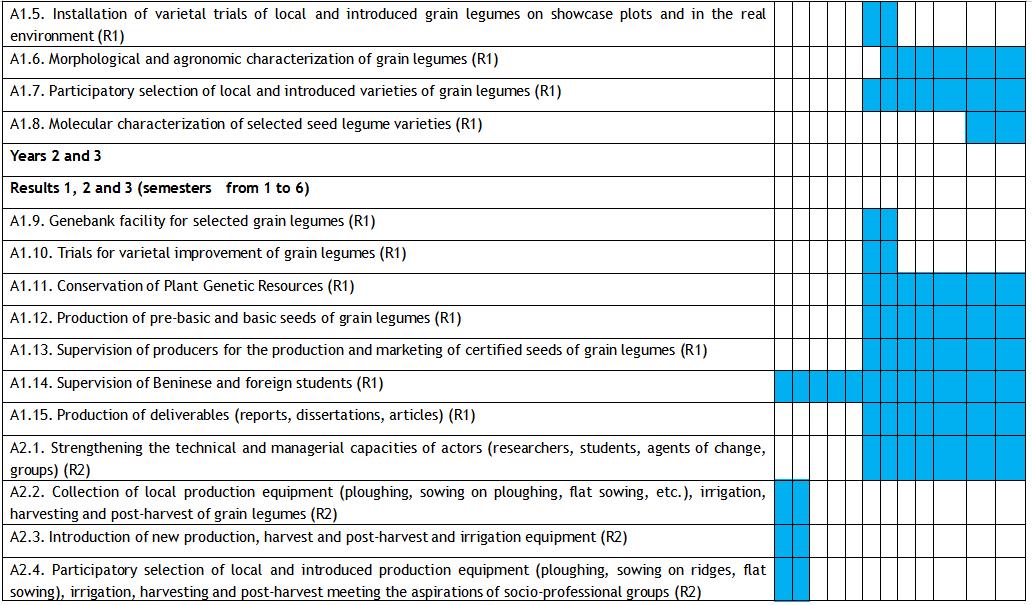
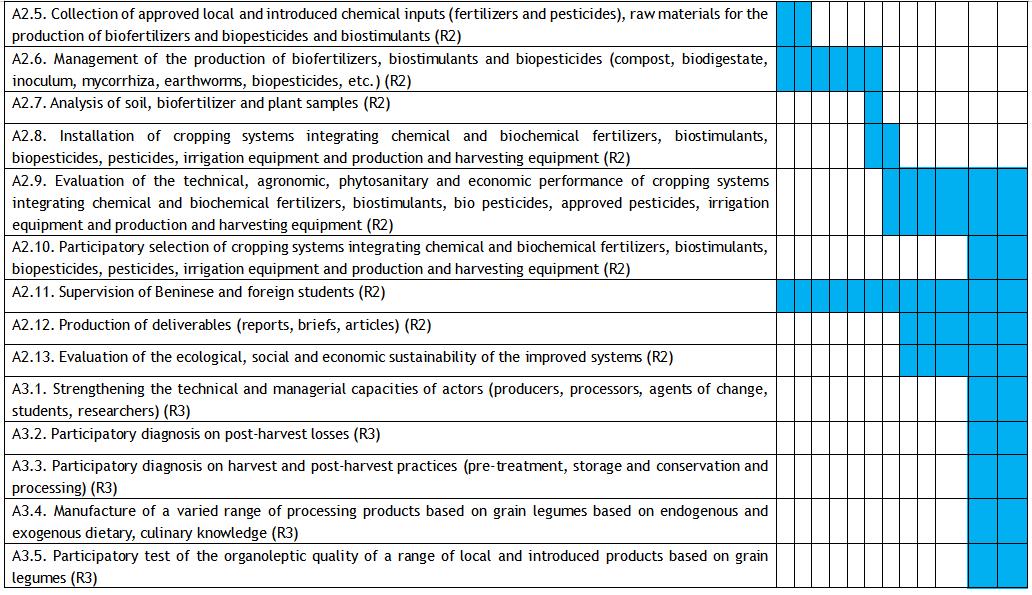
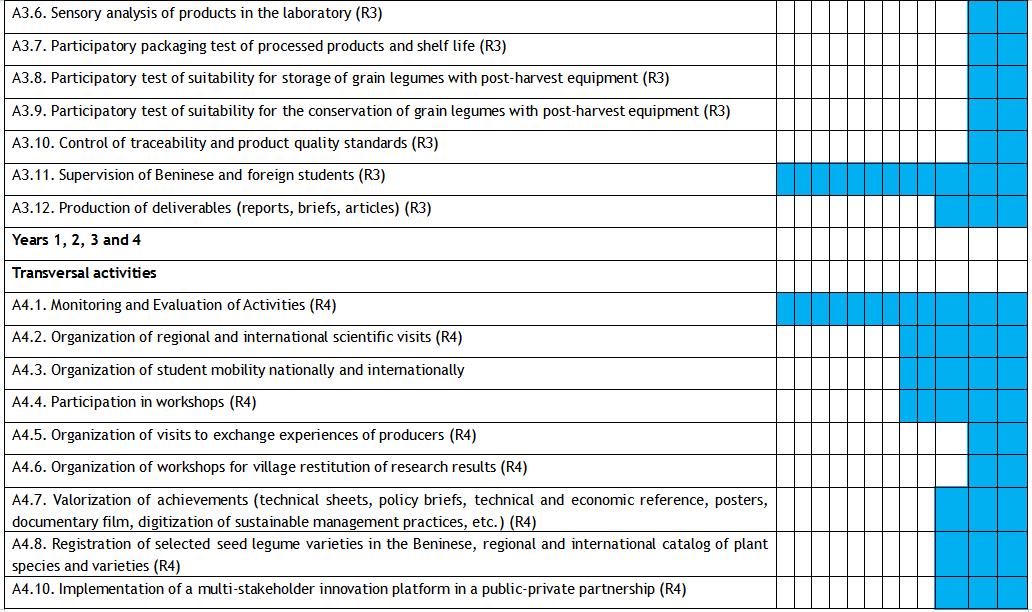
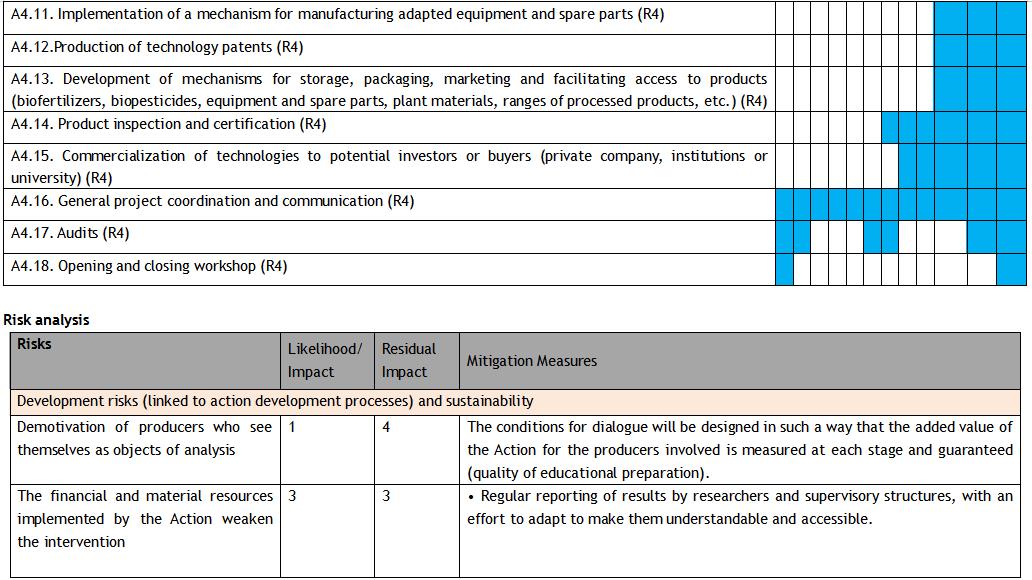
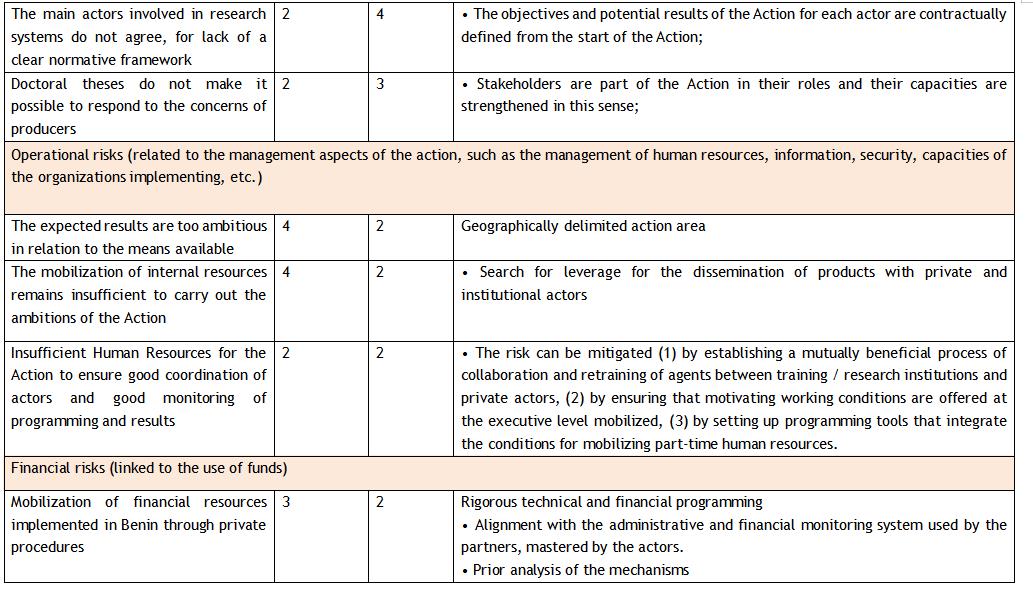
Direct Beneficiaries:
Producers of grain legumes, farmers' associations/organizations, in particular of women from the PDA4, who produce grain legumes (peanuts, cowpeas, soybeans, ground lentils, voandzou, etc.) but are faced with the problems of poor performance of cropping systems linked to soil depletion, poor water control and weak agricultural mechanization;
Processors for the agro-food processing of products but faced with the problem of quality of agro-food products;
Traders of grain legumes
Indirect beneficiaries:
Students at national and international level for their diploma training
Researchers at the national level, teacher-researchers from universities
R and D site technicians for driving and monitoring improved systems
Territorial Agricultural Development Agent (ATDA) for the transfer of technologies/innovations
NGOs for the popularization of good agricultural practices;
Municipalities and technical agents of town halls for land security and linking the project with the Communal Development Plans (PDC);
Equipment manufacturers for the provision of appropriate agricultural equipment to producers;
Input distributors to facilitate access to inputs for producers;
Added value of integrating the project into the network
The integration of the project into the network constitutes a crucible for the exchange of experiences and the strengthening of national capacities through the mobility of students in the universities of the partners for their training and supervision, the organization of electronic discussion forums, the organization of scientific workshops, organization of monitoring and evaluation visits in order to promote synergies and complementarities. Cross-disciplinary training will be provided to teacher-researchers and students with the help of consultants on the management of EndNote, SAS, SPSS, GAMS software for bibliography and data processing.
Monitoring and evaluation
The Partner will ensure the general coordination (technical, scientific, administrative and financial) of the project.
Our team will provide national coordination in Benin. The National Coordinator (Principal Investigator) will ensure that project activities begin and are carried out efficiently, in accordance with annual work plans, and budget. At least one monitoring visit to partners will be made each year. A website containing project reports and the results of the activities as they take place will facilitate the network approach which underlies the structure of this action. During annual meetings, all partners will review progress and define work plans for the coming year.
Thus, coordination will be ensured by:
day-to-day monitoring of the results and progress of the project by the applicant;
constant monitoring of scientific advances outside the project;
visits to partners to help organize the work and jointly analyze the results;
a steering committee organized every year, which will bring together a representative of each partner (co-researcher), to ensure the smooth running of the project, compliance with the schedule, validation of results and milestones;
monitoring of expenses associated with the project, which will be carried out by each task manager;
annual reports and a final report, presenting the scientific results obtained and the expenses incurred to achieve them, will be written by the scientific managers of each task.
Development involvement
The Action espouses the priorities defined in the National Agronomic Research Master Plan to meet the challenges related to the diversification of agricultural production, the increase in the income of actors in the sectors and the guarantee of food security through the generation of efficient technical itineraries in line with the sustainable management of natural resources.
The development and promotion of grain legumes will contribute to the diversification of African and Beninese agriculture in particular and will constitute a source of income for various actors in the sectors, especially women. It is expected that the Action will identify the accessions and technologies best suited to agro-ecological contexts. The harmonious expansion of grain legume crops that will be possible from the results of this research will allow the development of small local industries for processing seeds into various products for multiple domestic and commercial uses. The promotion of natural products derived from grain legumes could significantly contribute to the development of the economy with a very significant socio-economic, agricultural and ecological impact for Benin and the West African sub-region.
The impacts targeted by the initiative should benefit a large number of national and international researchers and students, as well as farmers in the sub-region through a multiplier and training effect, as well as their means of livelihoods, as the initiative seeks to improve the basis for national adaptation decisions